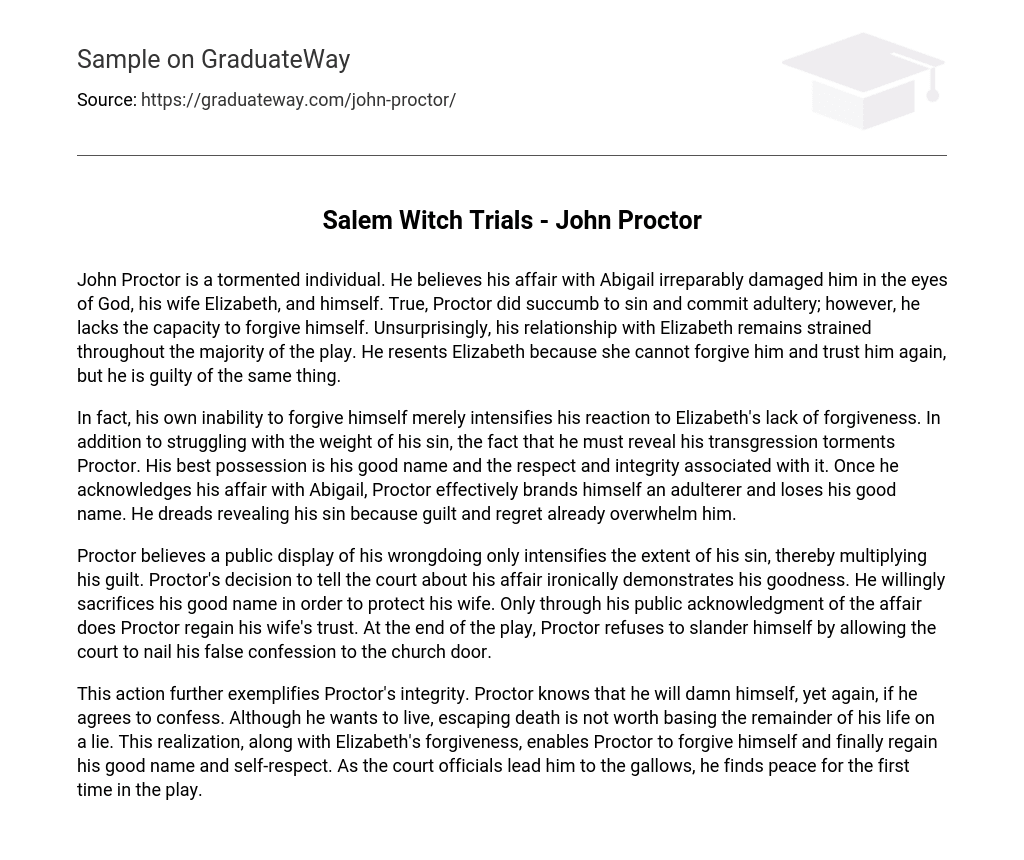John Proctor experiences intense torment as a result of his actions. He feels that his affair with Abigail has permanently marred his reputation with God, his wife Elizabeth, and even with himself. Although Proctor did indeed give in to temptation and commit adultery, he finds it nearly impossible to grant himself forgiveness. Not surprisingly, his interaction with Elizabeth remains strained for much of the story. Proctor harbors resentment towards her because she cannot bring herself to forgive him and regain trust, yet he is also guilty of the same lack of forgiveness.
The author suggests that John Proctor’s inability to forgive himself heightens his response to Elizabeth’s refusal to forgive him. Proctor not only wrestles with the burden of his wrongdoing, but also suffers greatly from the need to confess his transgression. His most valued possession is his reputation and the honor and trust it brings. However, once he admits to his affair with Abigail, Proctor condemns himself as an adulterer and forfeits his good reputation. The fear of exposing his sin consumes him due to the overwhelming guilt and remorse he already experiences.
Proctor feels that publicly admitting to his wrongdoing increases the severity of his sin, making him even more guilty. Surprisingly, his choice to confess his affair to the court showcases his virtue. He willingly sacrifices his reputation to safeguard his wife. It is through openly acknowledging the affair that Proctor is able to win back his wife’s trust. Ultimately, at the conclusion of the play, Proctor refuses to harm his own integrity by permitting the court to publicly display his false confession on the church door.
This action further demonstrates Proctor’s integrity. Despite knowing that he will damn himself by confessing, Proctor refuses because he believes that living a lie is not worth it in the long run. This realization, combined with Elizabeth’s forgiveness, allows Proctor to forgive himself and regain his good name and self-respect. As the court officials take him to the gallows, Proctor experiences peace for the first time in the play.





